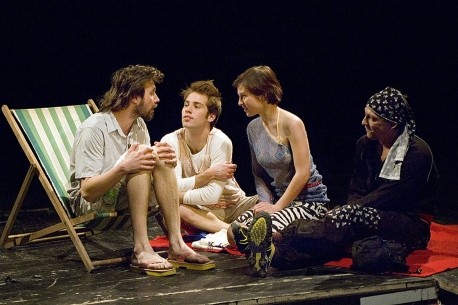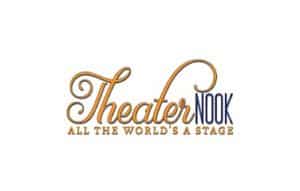
Theater in Education are usually stage shows which travel around different schools and learning institutions to perform, entertain children and young people. A theme or moral is usually what underpins a fun, interactive and educational performance.
Typically you would find theatre and education in primary, middle and secondary schools. Most interactive theater in education is usually hired by a teacher or principal.
What is theater in education? Basic terms it is an education in a theatrical format to engage young people by using audience participation, interactive theater, fun and engaging.
Stage actors are usually much more conscious of speaking up and making sure that everyone can hear in the back of the theatre; a film actor probably thinks of that a little less. Clint Eastwood
The themes can range from anything from body image, to bullying, to how to make friends, to how to do that your best as examples.
Often theatre companies who specialize in theatre in education advertise their shows in educational gazettes specified for schools. Or often theater groups send information around via emails or other social media such as Facebook. Teachers hire these companies in on a particular date to show to their children.
Payment often comes from children themselves for example; a small fee such as a few dollars, or payment can be covered by the school board, or a sponsored program from a local company.
Sometimes the traveling companies will accept payment from the children should their fees meet a specified threshold or amount, or schools will be asked to stump up for the fee themselves. This is often so with very small schools.
Often theatre and education companies obtain funding from local bodies councils, sponsorships or even like us to church groups, so fees can already be covered.E
How to start your own Theatre in Education Group
Come Up with a Concept
Come up with a concept, theme or an idea in which children can learn or grow from. Decide on a concept which connects children in an emotional way to identify problems in which they can overcome.
Possible Ideas for a Concept
Science chemical
Bullying
Friendship
Body image
Teamwork
Keeping our bodies healthy
Keeping ourselves safe
Positive self-concept
Pollution
Climate change
The ecosystem
Addictions
Ways to Obtain Funding
Decide where and if your concept is applicable for funding from your local arts council, charitable trust, or sponsorship from a local company or government body. Ask around and do your research for different ways to obtain funding.
Decide on The Dates For Your touring Company
It’s important for you to set touring dates early so you can organize and have plenty of time for the production of the show. This also makes it clear for marketing purposes. Deciding on dates also helps funding bodies decide if they can help fund your show for the dates required, because some arts councils fund a number of times throughout the year.
Writing the script
Most theater in education shows have a writer who often become part of the acting troupe themselves. However if you aren’t a writer, you can hire a scriptwriter or write the script yourself. Devise a clear and precise concept with a beginning, middle and ending using the typical arch. Have a problem that needs to be solved, where the problem becomes intense or reaches a climax and to find a good resolution. Remember that the younger audiences you are aiming your shows at, the more interactive the script and acting should be.
An example would be a child experiencing bullying from a fellow classmate. The child feeling upset and not knowing what to do, that is the problem to be solved. The climax could be where the bully intimidates another child and gets caught. They receive a form of punishment, or they in turn get bullied by another child. The resolution should aim at how a child overcame bullying and emerges stronger as a result.
The problem can be solved by the bully admitting wrongdoing and pledging never to do it again. Or they can simply learn a lesson together.
Make sure the script is fast-paced, has a sense of humor and has audience participation. This is pivotal, especially when working with children. Children want to feel as though they are part of the fun and problem-solving process. Slapstick humor does well with this genre of performance.
Casting Your Show
You can go the traditional route of auditioning general actors or going through actors agents.’ Many seasoned educational troupes tend to write for the same cast and crew with different themes and storylines. Some companies will have a number of shows ready to go at any one point.
You could also ask actors you know could do the job well and who is available for touring dates.
Sets and Props
Most theater in education shows often have a lot of props. Decide on the props you will need, the costumes and the set. Often these jobs are hired of to set builders, costume makers and prop makers, especially when making puppets. But many times props can be sourced from stores or made by the actors themselves. Sometimes shows can be made with very little funding and the actors themselves find and build what the need.
If using music, you can get royalty free music and source these from a variety of online outlets, such as Pond5, or Amazon. You can also create your own music, record it and use it in your shows. Otherwise, actors can learn to play an instrument such as the guitar or keyboard and utilize these in their shows.
Your sets need to be appealing for children or young audiences but also be easy to dismantle and erect quickly. The sets should also be light, but sturdy. Simple, but fun should be the moto.
Typically the traveling troupe will have a van or people mover of some description. This can should carry the props, set, costumes and cast members from show to show.
Personal Experience
While I (author) was a training actor, I was fortunate enough to co-write and perform in a couple of theater in education shows.
These shows were geared for secondary school students. One was about Kate Sheppard who was the first woman in New Zealand let alone the world to get women the vote. We had about 8 adult students co-writing acting and traveling this performance to local schools in our city.
Most of the performances went very well. We even performed in a women’s prison at one time. The female prisoners really appreciated the learning that they got from a play but also the fact that we took time out of a day to perform for them.
We also wrote and performed a show about alcoholism in the family. I played the daughter and I had a brother where we used to fight a lot, due to the disfunction of our parents. Basically the premise was we had an alcoholic mother who wasn’t coping with life and we were taking it out on each other.
At the end of the day the mother committed suicide and we had to deal with that as a family. We were hoping it was a cathartic experience for secondary school-age children, in that life still goes on and young people can still thrive.
We had to find our own costumes create a simple set and very little use of props as most of our set and large props were mined. When you mime props and set pieces, it takes away the need for props and still the audience will buy by what you’re doing.
Sometimes we as actresses were thrust in the middle of it. I remember one time sitting on the ground acting and yet I was sitting alongside other secondary aged students staring right into my face. That was confronting but also an exhilarating experience at the same time.
As a primary or elementary school teacher, I’ve also had many opportunities to see traveling shows come to school and entertain children I’ve worked with. Most shows have been very successful and interactive and fun. While at the same time getting across their overall message.
The best shows were; fast-paced fun clear and very bright. The children love to interact with the characters and even love to be a part of the show so that is important if you are thinking of putting on shows in the future. When working with secondary or high school-aged students, adjustments in regard to age-appropriate material, where it stimulates debate and in-depth thought should be key.
I’ve also seen shows that have been too wordy and they have lost the children’s attention span. So if you’re writing a script make sure it short and punch into the point and lots and lots of fun.
I’ve seen some great science traveling shows, where a couple of actors came out and showcased crazy and fun antics using scientific concepts such as using nitrogen gas as smoke. The children got a lot out of it and seem to remember concepts because they were part of the show and found it fun.
Traveling shows which come around to Primary School’s New Zealand every year are Duffy kids theatre shows. These shows usually go to low decile or low socioeconomic schools. They encourage the use of books in homes and reading not only at school but at home. Each child is given a book from the Duffy foundation, they meet a local celebrity or see a Duffy theater experience.
The Duffy foundation is based on the writer Alan Duff who wrote once we’re Warriors in which one of New Zealand’s most famous films by the same name came out in the 1990s.
These Duffy shows have been traveling schools for about 20 years and are still very successful. They’ve given young actors a vehicle in which to showcase their talent and to move on to more established higher-paying
Acting For Theater in education shows
As a performer myself working in front of children, I can also say that working in education in theatre, it is exhilarating and rewarding at the same time. Opportunities like these a great for beginning professional actors.
In Conclusion
Theater in education is great for children to interact and learn at the same time. Shows tailored to older students need to be challenging and engaging. To set up your own theater in education troupe, you need good vision, theme, team, and all the basic elements of theater. This is a great way for beginning actors and those who love acting for children and making a living at the same time.

